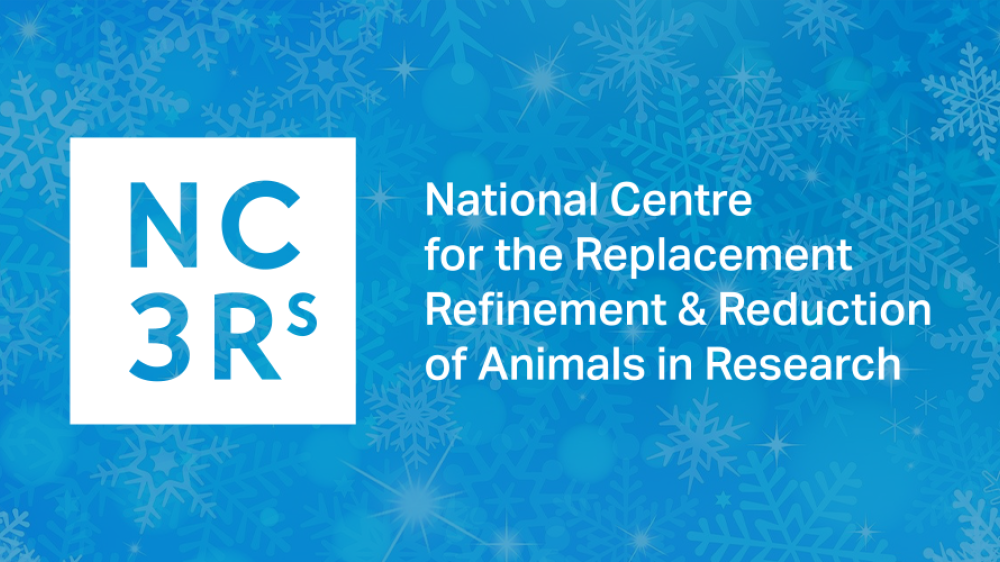NC3Rs 2022 – a year in review

Our top ten announcements and outputs from this year including 100 Tox Team papers published, 150 Project Grant Scheme awards and over £50M committed to replacement projects.
“In 2022 we continued to invest in, innovate and implement 3Rs advances in scientific research and testing. Through the hard work and dedication of NC3Rs team, our Board and Panel members, partners, collaborators and grant holders, we have launched new programmes of work, established exciting cross-sector collaborations, and continued to strengthen our relationships within the scientific community.” – Dr Vicky Robinson, Chief Executive.
This year we have shared 22 news items, hosted 62 events and posted over 500 tweets! Amongst all our activities, announcements and outputs this year, here are our top ten highlights from 2022:
- We kicked off the year by launching our refreshed NC3Rs website with streamlined menus and easier navigation to help all our audiences find the 3Rs information they’re looking for.
- In January our Tox Team published the 100th paper in their work to embed the 3Rs in toxicology and regulatory sciences. Their publications in 2022 have included: transforming the evaluation of agrochemicals, dosing level for repeat dose toxicity studies and opportunities to reduce the number of species used for long-term toxicity studies.
- In April we published guidance to harmonise welfare indicators for non-human primates used in scientific research. Building consensus on assessing macaque and marmoset welfare is crucial to maximise their wellbeing and ensure the highest quality data is obtained from these animals. Our paper was published on the NC3Rs F1000 gateway to ensure open access and maximise the 3Rs impacts of this work.
- During the spring we made eight Early Career Engagement Awards to NC3Rs-funded PhD students, Fellows and postdoctoral researchers. This new scheme aims to further support early career researchers, recognising the challenges they have faced due to the Covid-19 pandemic and supporting them to attend/organise events and activities which further the 3Rs impact of their work.
- July saw us celebrate the NC3Rs International 3Rs Prize winner Dr David Ferreira and highly commended runner up Dr Ben Newland for their innovative papers, both with major impacts for reducing the number of animals used in research.
- In the summer we published our updated strategy, setting out the NC3Rs’ plans and initiatives until 2024. This includes a renewed focus on replacement technologies and highlights the continued importance of global collaboration and cross-sector partnerships to achieve our ambitious targets.
- We announced six new project grants in September, bringing the total number of awards made since the Project Grant Scheme began in 2004 to over 150. Every project grant supports the development of new 3Rs models, tools, technologies or approaches.
- Autumn saw the NC3Rs working group on high yield rodent behavioural experiments publish recommendations on refining head fixation and fluid/food control. We created a dedicated 3Rs resource page to promote best practice and look forward to connecting with neuroscience researchers at the British Neuroscience Association Festival of Neuroscience 23 – 26 April 2023.
- In October we reached a major milestone, having awarded over £50M in grants to replace the use of animals in research. Our replacement portfolio includes 249 projects across 68 research organisations and has led to over 2.4k publications.
- We rounded off our busy 2022 events calendar with the annual Primate Welfare Meeting last month. This was our first ever hybrid event and heralds the return of in-person meetings after the Covid-19 lockdown. The Meeting coincided with the re-launch of our new look NC3Rs Macaque website, containing information and practice guidance on macaque biology, behaviour, husbandry and welfare.
We look forward to keeping you updated with our work in 2023, as we continue our mission to pioneer better science through the replacement, reduction and refinement of the use of animals in research. Merry Christmas and a Happy New Year!
